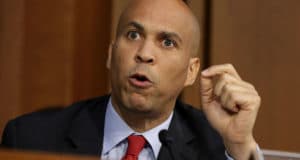|
Listen To The Article
|
Local governments in most jurisdictions in America are running nearly unchecked in expansion of programs, spending and taxation. According to the St. Louis Federal Reserve, local government bonded debt was a little over $1 trillion in 2000. As of September of this year it is at $3.7 trillion.
Meanwhile, Ronald Reagan’s former budget director David Stockman recently reported that:
“The median U.S. household income in 2012 was $51,000, but that’s nothing to crow about. That same figure was first reached way back in 1989 — meaning that the living standard of Main Street America has gone nowhere for the last quarter century.”
So local governments’ debts and spending has exploded while our median household income has been stagnant for nearly 25 years.
Part of their local spending will be for public relations firms hired to incessantly pound the message home on how “over-worked and under-funded” they are. Most everyone employed by local government adopts the mantra. It’s easy for the general public to believe this, until the current property tax statement on their small to mid-sized business, home or farm arrives in the mail or when their escrow agent notifies them of a significantly increased monthly house payment to cover the new taxes.
A couple times a year people will howl for a few days, maybe go into the city or county office and request an explanation and then they will go home and try to figure out how to pay for the massive increase and move on, shrugging, “What can I really do about it?” The falsehood to this propaganda campaign was made clear by Madison County, Ill., Treasurer Kurt Prenzler. He ran for office in 2010 on a platform of cutting 30 percent of his office payroll within one year, without shortchanging any services, or “You can fire me!” he told voters. He was elected. Prenzler, a Christian, homeschool dad, CPA and a law school graduate, didn’t need one year to deliver on the promise. He “pink slipped” 30 percent of his staff in 30 days.
Further, within 90 days of taking his oath Prenzler also corrected the corrupt “tax certificate” auction process where investors bid on the interest rate they want on delinquent property taxpayer’s past due tax statements. (Many states have a statutorily fixed rate, but some states like Illinois provide for an auction, where potential investors bid “down” their acceptable interest rate on a given delinquent parcel.) The result for the first year he ran the auction in Madison County, was that the mostly poor people didn’t have to pay over 18 percent interest to redeem their past-due tax certificate (investment interest which historically went to Prenzler’s predecessor’s cronies in rigged auctions) but the average rate came in less than 4 percent. And the last I read his predecessor now faces 31 to 40 months in federal prison.
Most local government departments have a “busy season” for a few weeks, but are generally far over-staffed with benefits — funded and to-date unfunded — that greatly exceed anything their equivalent skill-set could yield in the private sector. But one thing most local government employees have done is get well-organized and mobilize at the ballot box to protect each other’s funding, budgets, staffing, etc. — and those local elected officials who support them as well. In the days of voter apathy on such local issues and candidates, their small but aggressive voting bloc often rules the day. But most often they don’t rule when I help local citizens organize to oppose them.
So How Do You Challenge It?
If you are a “new kid on the block” and have no local political credibility, then going to public hearings to protest budgets, excessive staffing and outrageous retirement benefits seldom brings about positive change. In fact, I’ve even seen a national school administrator’s association website where they teach the bureaucrats how to marginalize such individual protestors. Positive change for the middle class will not come until the bureaucrats know you can deliver real change at the voting booth to oppose increased spending proposals and to throw out the elected officials who are joined at the hip with them.
If you are trying to build a resistance movement you first need to establish credibility that you can motivate voters to join your cause. Most voters are apathetic in the face of this political apparatchik, this juggernaut. But what local citizens so often don’t recognize is that their opponent’s machine remains a minority voting bloc. In most cases, we have the sadly immobilized majority bloc.
But this majority bloc can often be mobilized when facing a spending proposal where state law requires the local government to secure voter approval. This would include overrides of statutorily capped levy (millage) rates, issuing new general obligation bonds, certain uses of revenue bonds, etc. Where led, voters will respond negatively to attempts to change their status quo, especially changes that will cost them more money. If you can hand the local government body a resounding “no” vote in the midst of a fairly high-profile campaign, suddenly your committee and its officers will have street credibility.
Doesn’t Such An Educational Effort / Campaign Effort Take Money?
Yes, it does and Copperhead will help you raise it. It’s one of the first things we show you how to do. There are property taxpayers in each jurisdiction who stand to bear a significant tax increase if a ballot proposal passes. Within that group there is a smaller group that is immune from any persecution local government agencies and their proponent friends may try to mete out. This group is “golden” to your cause. How do you find them?
Revisit the counsel of great men and learn how to reclaim the quality of government we once enjoyed.
You can first secure the list of the larger group by placing a public records request of your county Appraisal District or County Assessor’s office and ask for a data export of all commercial, multi-unit housing and agricultural parcels located in the subject jurisdiction (i.e. school, county, city, etc.). If you need help writing a public records request, see Copperhead’s Roll Back Local Government website. They are much easier to write than you might think and Copperhead provides some sample letters (drafted from much experience) and a link to search the basic law for each state at this link. A key aspect of the request is to ask for “all” fields of data (parcel ID number, legal description, mailing address, every last field – even if they whine about it) tied to each parcel record, else they try to limit you to some less-valuable information. You do not want this report as a print-out, but in digital form.
Such exports from their database, with no filtering involved, take little time to execute and burn onto a CD and hand it to you or send via email through an FTP large file server. I don’t recall a client paying over $50 for such a file. This government office needs to keep a mailing address for each parcel holder as well. This will give you the address where to send your solicitation letter. Many states forbid such appraisal/assessment records to be used for commercial purposes (advertising a good or service). But we have found them to be clear for political purposes. After sorting out the “big box” companies you can target a list of 200 to 300 businesses with the largest property valuations who might be willing recipients of your letter, sent in your hand-addressed envelopes.
In a spreadsheet, you can then apply the levy/millage rate for the local government’s proposed new spending program to each property owner’s valuation (adjusted by any state class rate adjustments, rollbacks, etc.). From this you can produce a close estimate of the annual tax increase they are facing if the proposal passes and their total new tax cost over the life of the proposal. (I.e., 4 to 7 years on a new levy or 20 to 30 years on a new bond.)
This total new tax amount can then be mail-merged into the subject line of an introductory letter that can be sent to your target list. The letter will provide a general outline of the issue itself, the funding proposal, the risk they are facing and the estimated cost to them. As an example, the subject line can look something like this:
“RE: The $123,500 estimated tax increase you face if the county’s spending proposal passes at the ballot box!”
The local committee members can then follow up with a phone call about a week after the letters went out and begin to sort through the various degrees of interest in your general opposition plan. From these calls, you will start to find your core support of those who will come to a private meeting to listen to your group’s detailed plan of political attack to oppose the proposal. A business facing $6,200 of new property taxes each year for the next 20 years will likely have to fund it right from their profits. Once they learn this and hear your plan, they will often not be shy about writing out a $2,500 check to support your committee efforts.
Yes, many are nervous about publicly donating to an opposition effort in their local market. But such “nervousness” is eroding fast with the explosion of the costs of local government and how it is showing up on the property tax statements of small and mid-sized businesses. I’ve had one campaign where a local franchise owner of a national restaurant chain helped fund our efforts and recruited his competitors to help out as well. This group can soon form the core of your growing resistance movement.
Next month I will walk through the first stages of a successful fight, what pitfalls to avoid, what counterintuitive measures to pursue. In coming columns, I’ll also want to cover how to leverage any ballot box victory into a local movement designed to begin reducing the size of local government. Much material is covered at our website at RollBackLocalGov.com. If you have particular questions or subjects you might suggest I cover, feel free to email me at [email protected]
 Off The Grid News Better Ideas For Off The Grid Living
Off The Grid News Better Ideas For Off The Grid Living





